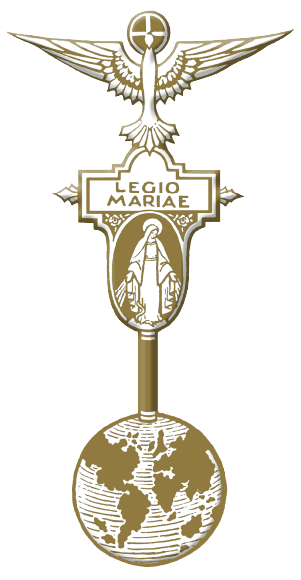April Allocutio 2024
Queen of Heaven, Rejoice. Alleluia!
Fr. Paul Churchill, Concilium Spiritual Director
During the Easter Season the Angelus is replaced by the Regina Coeli. This prayer is intriguing and is worth a reflection.
There remains in it a reference, albeit implicit, to the Annunciation and Incarnation indicated by the words, “For He whom you were worthy to bear”. But after that the prayer is truly intriguing.
Why does the Church say to Mary, “Queen of Heaven rejoice, for he whom you were worthy to bear, is Risen as he said. Rejoice and be glad for the Lord is truly Risen”? It sounds as if we are giving reassurance to her of her Son’s Resurrection. Surely she knew. She must know!
And that was the view held, for example by several saints such as St. Ignatus of Loyola. Surely the very first that Christ would have gone to was his mother, to say to her, “Ma, it’s okay. I’m alive and well!”
But the problem lies in the Gospel accounts. If she had had a visit first from him, surely she would have told John as he had been committed to her care as her son at the Cross? But John reports no such matter. Given his report of what happened at Cana and reported those words of Christ from the Cross, surely he would have included this had it happened?
Besides, the Gospels are clear that the first witnesses to the Risen Lord were other women, chief among whom was Mary Magdalene. St. John’s Gospel and St. Mark’s are both clear that Mary Magdalene was the first he appeared to. And recently Pope Francis has raised her feast-day to the level of a Feast calling her the Apostle to the Apostles.
We know of his appearances to the couple on the road to Emmaus, that he then appeared to Peter and then to the eleven. And according to Paul he appeared to 500 others before eventually revealing himself to Paul on the road to Damascus (1 Cor 15:3-8). But in no text is it said without ambiguity hat he appeared to Mary. In fact there is no reference to her in any Gospel after mention of her at the foot of the Cross. The only other explicit reference to her in the post-Resurrection period is when she is mentioned praying with the apostles in the Upper Room after Jesus ascended into Heaven. Would Luke, who took so much care with his research have left her out of the Resurrection appearances?
So what is going on? Might it be that Mary was so taken for granted that everyone overlooked saying what was so obvious. Don’t we humans tend not to state the obvious?
But there are other considerations. For example, had Jesus appeared to Our Lady first or indeed at any stage, might her evidence have been regarded as prejudiced. Mothers and their sons! Always defending and backing their own sons even when they are scoundrels. Or might any evidence she gave have been considered a sad sign of how her mind had been disturbed by the suffering she witnessed in him? Mothers are never the best of witnesses for their children.
So maybe the divine dispensation opted not to let her be a witness of his physical resurrection appearances, opting instead for the glory of her Assumption? But I suggest another strategy to the divine arrangements.
St. Luke carefully narrates Elizabeth’s words to Mary, “Blessed is she who believed that the promise made her by the Lord would be fulfilled”. And then connect that to Our Lord’s reported words to Thomas a week after the Resurrection, “Blessed are those who have not seen and yet believe!” Maybe in the divine plan Our Lady is being presented as our leader in Faith? Indeed perhaps her faith is so strong that she does not need to witness her son Risen? Magdalene needed it, the weak Apostles needed it, but not Our Lady as her faith was of diamond quality?
Indeed Pope (St) John Paul, quoting the recent Vatican Council, said “The obedience of Faith must be given to God who reveals, an obedience by which man entrusts his whole self freely to God”. And then this great Pope says, “This description of faith found perfect realization in Mary” (Redemptoris Mater 13). And he will add, “How great, how heroic then is the obedience of faith shown by Mary in the face of God’s inscrutable judgements … Through faith the Mother shares in the death of her Son, in his redeeming death; but in contrast with the faith of the disciples who fled, hers was far more enlightened” (ibid. n.18)
I have no doubt but that St. John, after he, with Peter, had found the tomb empty, would have gone quickly to Mary so as to tell her his good news. In the words of the Regina Coeli I can nearly hear John’s outburst to her. “Mary, your Son has risen as he said. Rejoice. Alleluia!” To which I can hear her reply, “I know. I always knew!” He met that faith in her which at Cana already knew what He would do despite his seeming rebuff in those words, “My hour has not yet come” (Jn 2:4). Mary already knew because her faith was the greatest ever.
Am I saying absolutely that Our Lord never appeared to her in the days and weeks after his Resurrection? No. That would be to go to far. But what the New Testament wants to emphasise is that Mary is the supreme leader in faith.
So, let us pray, “Mary, our Queen, blessed are you who believed. Obtain for us all a faith, firm and immoveable as a rock which will be our pillar of light through this valley of tears. Amen.”

